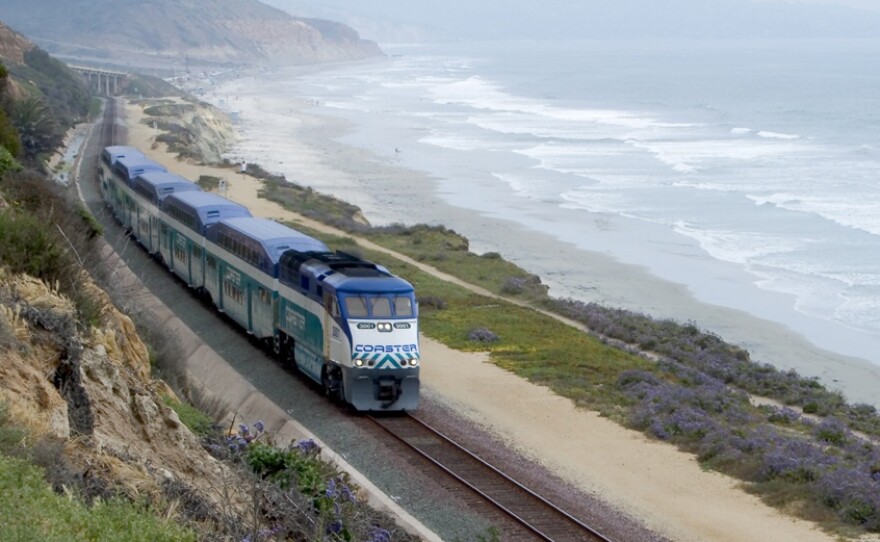Getting some work done while you commute is a big incentive to ride public transit. But the wifi on the Coaster can’t keep up with demand.
Coaster passengers need their own wireless modems if they want to surf the web as they ride to work. They had free wifi on the train for a while, but Deborah Castillo of the North County Transit District said some riders “abused the privilege” by downloading music and movies, knocking other passengers off line. In December the agency withdrew the wifi service, while it investigates the options to make it more reliable.
Castillo said NCTD might survey passengers soon, to ask what service they would find acceptable.
“Then look at the technology,” she said, “and see if there is a fix or if there isn’t a fix, If that gap is just too wide, and if people are going to be too unsatisfied or not. We don’t even know what’s possible in terms of adjusting it.”
Castillo said most cell towers are built close to freeways rather than rail lines, so service isn’t easy to provide, though working on the train is safer than working on the freeway.
NCTD is not the only agency having trouble making wifi meet its passengers expectations. Amtrak is facing similar challenges.
Public transit riders do have one piece of good news, as a result of the fiscal cliff settlement. Kimberly Weinstein of SANDAG said employers can offer their employees tax breaks if they ride the train.
“If you do want to make a choice to take transit or use a van pool,” she said, “you have parity now with tax benefits, like people that pay for their parking.”
The legislation allows employees to take up to $240 a month from their paychecks before tax, to pay for public transit passes, if their employers subscribe to the program.
Weinstein says there is no data on how many employers take advantage of the perk, but federal employees like Navy personnel are some of the biggest beneficiaries.







